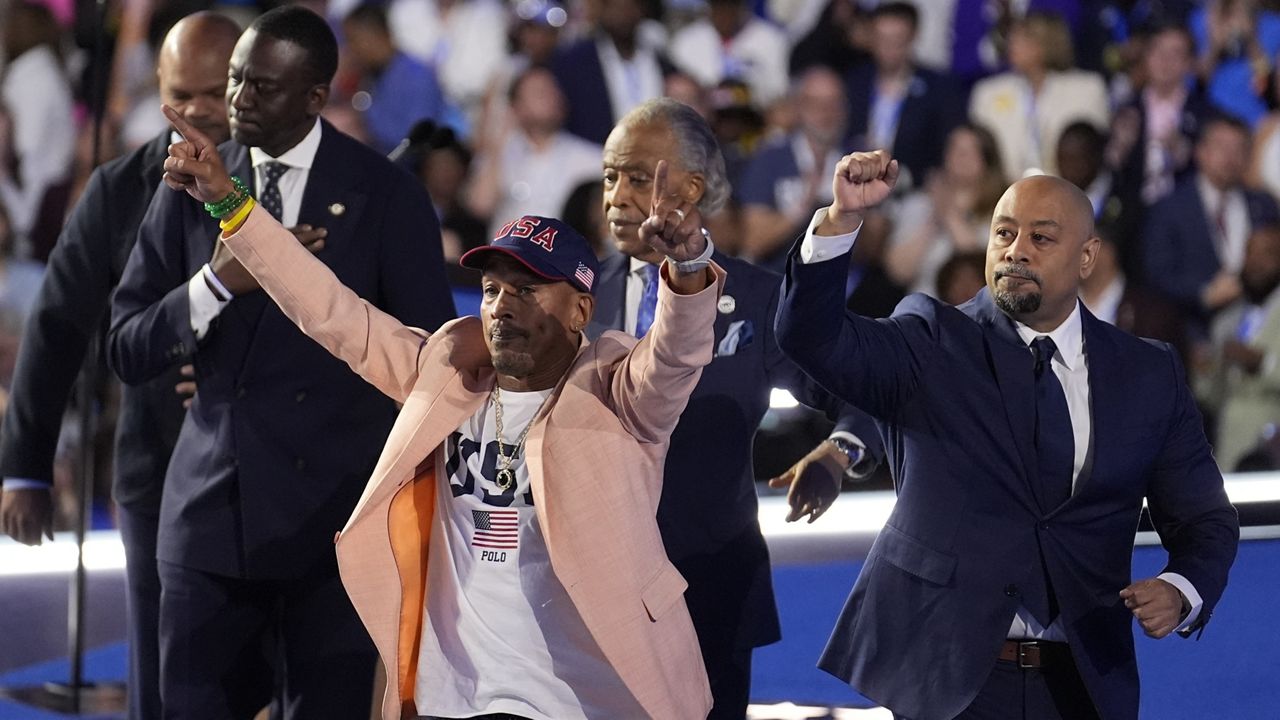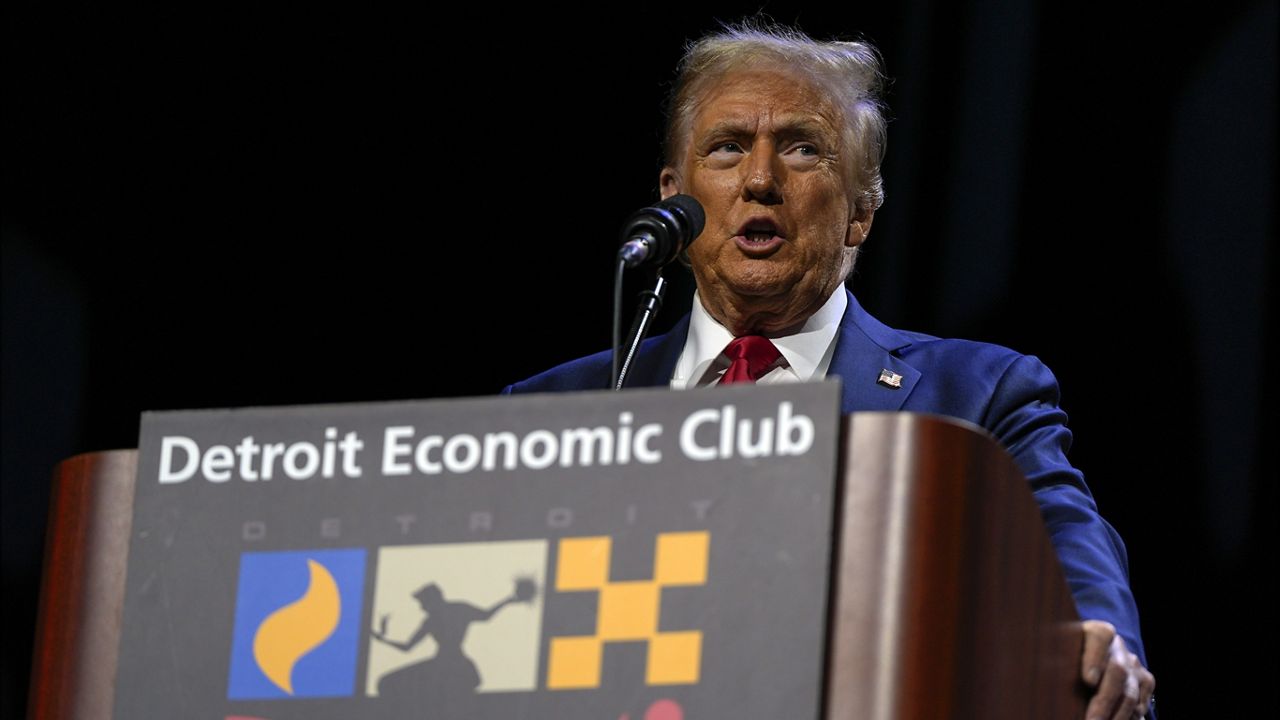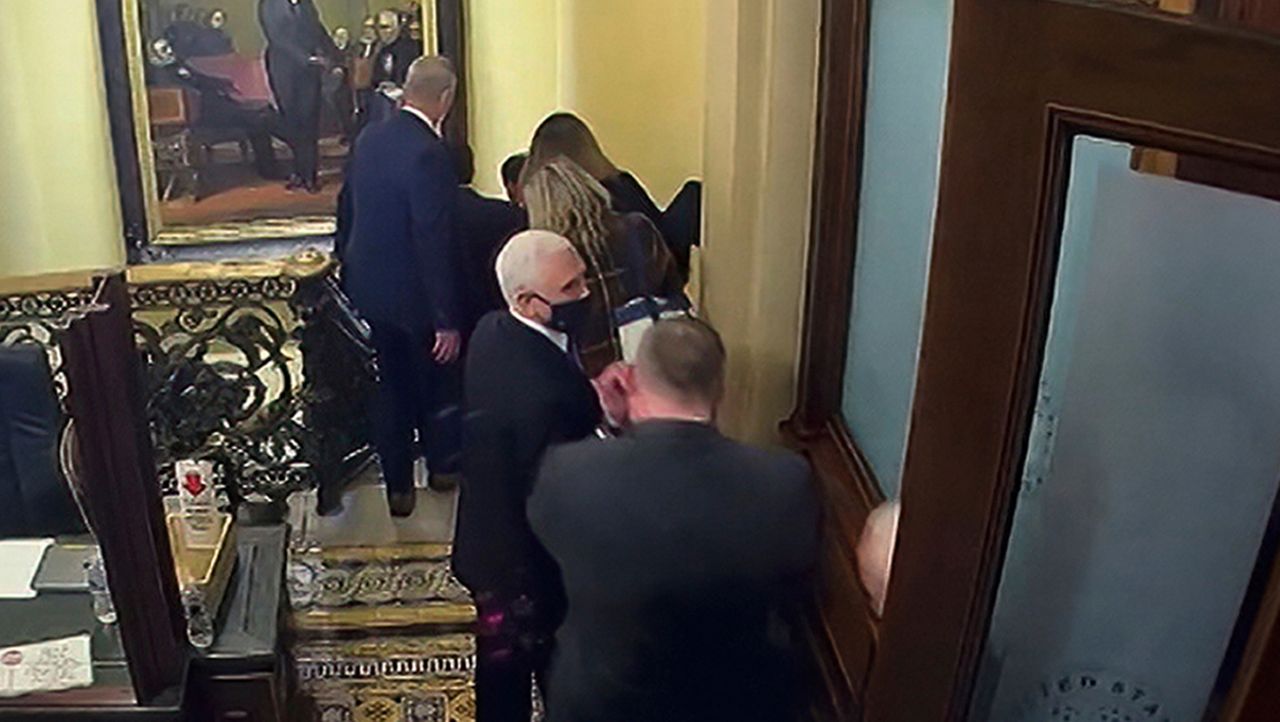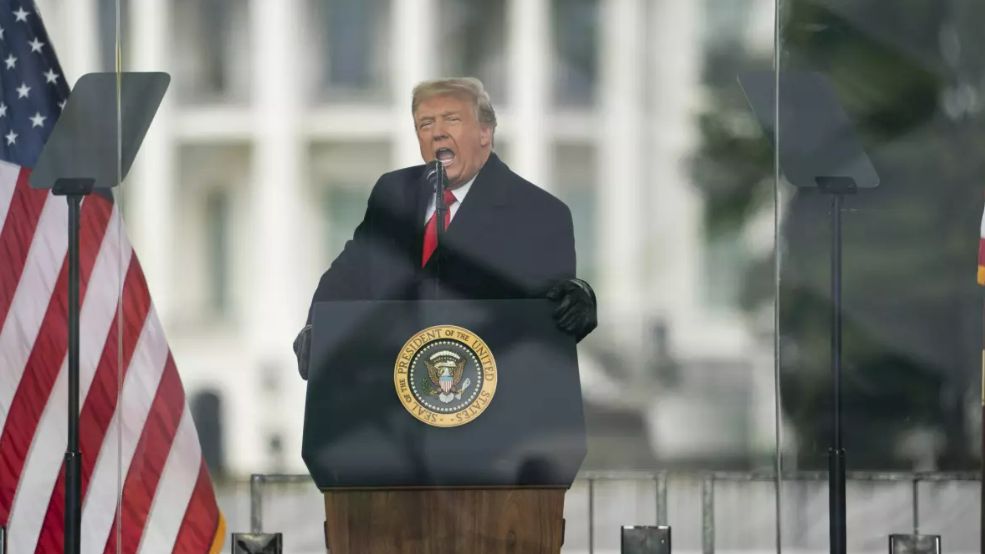The long-awaited special grand jury report that summarized the Fulton County, Georgia, District Attorney’s probe into efforts by former President Donald Trump and others to overturn the state's election results was released on Friday.
Among the findings in the report, the grand jury voted to recommend charges against South Carolina Sen. Lindsey Graham and both of Georgia’s former Republican senators, David Perdue and Kelly Loeffler, "with respect to the national effort to overturn the 2020 presidential election."
Also among those the panel voted to recommend charges against were former national security adviser Michael Flynn, Trump attorney Cleta Mitchell and former Trump campaign adviser Boris Epshteyn. None of those individuals were ultimately charged by Fulton County DA Fani Willis with any crime.
All told, the report says the panel recommended charges against 39 people compared to the 19 who were ultimately charged.
Speaking to reporters later Friday, Graham maintained that what he did was "consistent" with his job responsibilities as a U.S. Senator and "at the end of the day, nothing happened."
"I called around different states including Georgia as a sitting Untied States Senator, chairman of the Judiciary Committee," he said. "I eventually certified the election in all states, including Georgia. I didn't find any evidence of mass voter fraud, but I did have concerns about the mail-in ballot systems in Georgia and other places.
"This is troubling for the country," he added. "We can't criminalize senators doing their job when they have a constitutional requirement to fulfill. It would be irresponsible for me, in my opinion, as chairman of the committee not to try to find out what happened."
Loeffler, Perdue and a lawyer who has represented Flynn did not immediately return messages seeking comment Friday.
Former federal prosecutor David Weinstein said it's "not unusual at all" for a grand jury to recommend charges but for a prosecutor not to pursue them.
"This is a different situation than when a prosecutor presents a proposed indictment to a grand jury containing all of the people who he or she believes should be indicted," Weinstein, a former assistant U.S. attorney, told Spectrum News. "This was a study by the grand jury of what took place and recommendations they made about who they thought as grand jurors charges should be brought against.
"It then goes back to the prosecutor for the use of her discretion to determine different factors that play in: the law, the facts, whether people are cooperating, certainly the positions that certain individuals held at the time and hold now," he continued. "And all of that goes into her discretion to determine, 'well, who am I actually going to file charges against?'"
Trump and 18 others were charged last month in a sweeping indictment accusing them of creating a "criminal enterprise" to overturn his loss in the state to Joe Biden in 2020. The former president and his 18 co-defendants have all pleaded not guilty.
The panel spent seven months hearing from some 75 witnesses before completing a report in December with recommendations for Fulton County District Attorney Fani Willis on charges related to attempts to overturn the 2020 presidential election. Willis had said she needed the panel's subpoena power to compel the testimony of witnesses who might otherwise not have been willing to appear.
Fulton County Superior Court Judge Robert McBurney ordered the partial release of the report in February but declined to immediately release the panel’s recommendations on who should or should not be prosecuted. The judge said at the time that he wanted to protect people’s due process rights.
But McBurney said in a new order filed Aug. 28 that the due process concerns were moot since a regular grand jury indicted Trump and his 18 co-defendants.
Many of those indicted — including former New York mayor and Trump attorney Rudy Giuliani and Trump White House chief of staff Mark Meadows — are known to have testified before the special grand jury. Trump, the early frontrunner for the 2024 Republican presidential nomination, was never called and did not appear before the panel.
Graham was among those the panel sought to hear from, which culminated in a lengthy fight that reached all the way to the U.S. Supreme Court. He had asserted that his role as a U.S. Senator shielded him from testifying, but the court rejected that assertion. He ultimately testified in November of last year, with his office saying in a statement that he "answered all questions" in a roughly two-hour testimony.
"The senator feels he was treated with respect, professionalism and courtesy," the statement from Graham's office read.
When Willis filed paperwork in July 2022 seeking Graham’s testimony, she wrote that she wanted to ask him about a phone call he made to Georgia Secretary of State Brad Raffensperger shortly after the election.
Raffensperger has said Graham asked whether he could reject certain absentee ballots, which the secretary of state said he interpreted as a suggestion to throw out legally cast votes. Graham has called that idea “ridiculous.”
The parts of the report previously released in February included its introduction and conclusion, as well as a section in which the grand jurors expressed concerns that one or more witnesses may have lied under oath and urged prosecutors to seek charges for perjury. The panel’s foreperson had said in news interviews that the special grand jurors had recommended that numerous people be indicted.
Weinstein said it was "not surprising" to see a grand jury recommend charges against federal officials, citing precedent of people in positions of authority facing charges.
"When the grand jury was looking at it, they were looking at all the people who were involved," Weinstein explained. "Some of those included people who were sitting senators. That doesn't put them above the law, and certainly they were being considered as targets or subjects in the investigation. We have seen in the history of our country, congressmen, senators, both state and federal, who were sitting in those positions where there were charges that were brought against them, and they had a right to defend themselves. In some cases, they went to trial, they were acquitted. In other cases, they went to trial and they were convicted."
He noted that prosecutors could change their minds and ultimately bring charges to those named -- though Weinstein said doesn't see it happening.
"They've now been named in the grand jury report, it's become public that they were being considered," he said. "But a lot of things went into the prosecutor' decision as to who they would charge or who they wouldn't charge.
"For now, they're not included as those people who were charged," he continued. "That may factor in their cooperation, the strength of the evidence, the prosecutor's ability to provide enough facts and witnesses to obtain a conviction.
"So for the moment, they're uncharged," Weinstein added. "That doesn't mean at some point down the road, if additional facts come in, that might change the prosecutor's mind that she couldn't supersede and add other people in. But for the moment, I don't see that happening."
"It certainly looks like [Willis] picked out the people who she wants to proceed against, and things are moving very quickly in the trial court."









